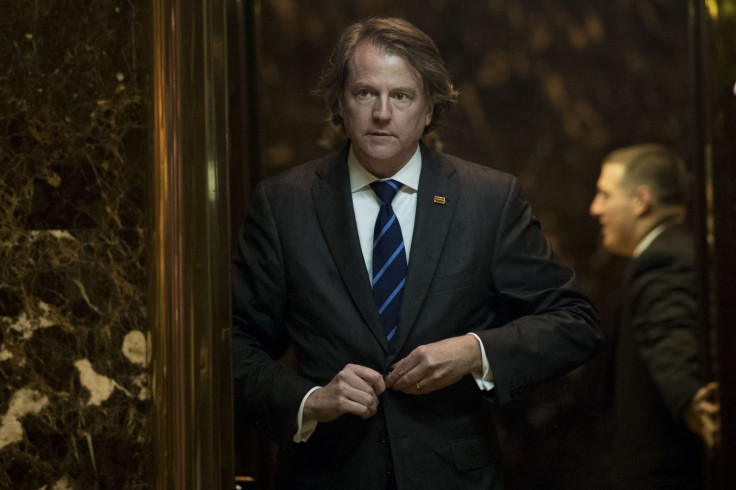Trump To Be Impeached By House Again? New Impeachment Articles Passed If There's New Evidence

KEY POINTS
- Testimony by former White House counsel Don McGahn might lead to new articles of impeachment against Trump
- McGahn worked for Trump until October 2018 and was ordered by Trump to fire former special counsel Robert Mueller
- McGahn has refused to comply with a court ruling ordering him to testify before the House committees involved in the impeachment inquiry
The House Judiciary Committee that filed a court case Monday seeking to compel former White House counsel Don McGahn to testify into misconduct by president Donald Trump said more articles of impeachment are in the cards.
Lawyers for the committee that filed the case with the Washington D.C. Court of Appeals argued the articles of impeachment aren't complete and might be added to with testimony from McGahn, who Trump has ordered not to testify. They said the committee might draft and recommend “new articles of impeachment” against Trump if additional evidence is revealed by McGahn.
Democrats have been fighting in court to enforce a subpoena ordering McGahn to testify. They are arguing McGahn’s testimony is “central” to parts of the committee’s investigation into Trump. They also said McGahn’s testimony is “also relevant to the Committee’s ongoing investigations into Presidential misconduct and consideration of whether to recommend additional articles of impeachment. McGahn could help the Judiciary Committee establish a pattern of obstructive behavior that will bolster the case for impeaching Trump on obstruction of Congress.
“The Committee continues to suffer harm with each additional day that it is denied access to McGahn’s testimony,” according to the lawyers. “The Committee should not be required to wait any longer.”
McGahn was the White House counsel until October 2018 and was part of Trump's inner circle of advisers during most of the investigation into Russian meddling in the 2016 presidential election by former special counsel Robert Mueller. Mueller said McGahn was a key witness and provided investigators with testimony about what he had witnessed, including potential acts of obstruction of justice. These include Trump ordering McGahn to fire Mueller, which McGahn refused to do.
A federal judge last November 25 ruled McGahn must comply with a congressional subpoena and testify before the House. Judge Ketanji Brown Jackson said that as a matter of law, presidential aides (including McGahn) must appear before Congress if compelled to do so.
She said aides cannot defy a congressional subpoena on the basis of absolute testimonial immunity, even if the president for whom they work or worked for demands it.
“It is a core tenet of this nation’s founding that the powers of a monarch must be split between the branches of the government to prevent tyranny … Stated simply, the primary takeaway from the past 250 years of recorded American history is that presidents are not kings," wrote Judge Jackson in her 120-page ruling.
She said it is the role of the judiciary to interpret the law and of Congress to conduct investigations of suspected abuses of power by the government. She ruled the Department of Justice’s claim “to unreviewable absolute testimonial immunity on separation-of-powers grounds … is baseless, and as such, cannot be sustained.”
Despite this adverse ruling, McGahn has refused to appear before the House. The Department of Justice appealed the ruling.
© Copyright IBTimes 2024. All rights reserved.





















